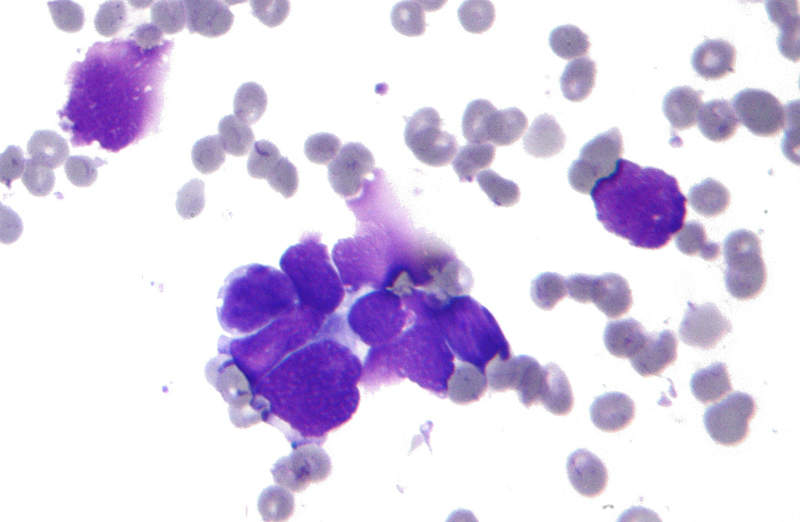Roche announced on Monday, June 25 that the Phase III IMpower133 study evaluating its anti-programmed death-ligand 1 (PD-L1) immune checkpoint inhibitor (CPI) Tecentriq (atezolizumab) with carboplatin + etoposide (CE), the standard-of-care chemotherapy regimen in treatment-naïve extensive-stage small cell lung cancer (ES-SCLC), met its co-primary endpoints of overall survival (OS) and progression-free survival (PFS) at the first interim analysis.
While the company has not released any efficacy and safety details of the interim analysis, it is planning to submit the data to both the FDA and EMA for a prospective marketing approval in the US and EU. Despite making up 15% of lung cancers, treatment of SCLC is heavily dependent on chemotherapy, therefore making it an indication with low barriers for market entry and one that allows for rapid adoption of new therapies in the clinic due to the absence of effective treatment options.
Unlike the hurdles that Roche has experienced with respect to positioning Tecentriq in non-small cell lung cancer (NSCLC), it appears that Tecentriq’s efficacy in SCLC is not defined by PD-L1 expression or tumour mutational burden in treatment-naïve patients with ES-SCLC, which will lead to a broader label indication for Tecentriq in SCLC. In addition, combining Tecentriq with the standard-of-care CE should also expedite integration of Tecentriq to the treatment paradigm in SCLC, as physicians are already familiar with CE and will co-administer Tecentriq with carboplatin, which will be followed by etoposide.
To this end, the major determinant for adoption is expected to be the safety of the combination regimen, which the company stated is consistent with the known safety profile of the individual medicines, and did not result in additional safety signals when Tecentriq and CE were administered in combination. According to GlobalData’s market research, a total of 15,000 treatment-naïve ES-SCLC patients are expected to be treated with the CE regimen in the US in 2018, meaning that an additional, sizable patient population in the US will be eligible for treatment with Tecentriq upon its marketing approval in SCLC.
Rivalries brewing in the SCLC field
While Tecentriq has fallen behind Merck’s Keytruda (pembrolizumab) in NSCLC, it is in a favourable position in SCLC when compared to rivals Keytruda and Bristol-Myers Squibb’s Opdivo (nivolumab). Both Keytruda and Opdivo have efficacy and safety results reported in relapsed/refractory (r/r) SCLC and Opdivo is already recommended by the NCCN guidelines in r/r SCLC and is on track for an official FDA approval, which is under priority review with a due date at the latest of August 16, 2018.
Opdivo’s initial label will cover patients with disease progression following two or more lines of therapy, which amounts to a much smaller patient pool compared to treatment-naïve patients. Similarly, approval in r/r patients should not be a threat to Tecentriq’s use in treatment-naïve patients. On the other hand, Roche’s front-line strategy for Tecentriq could help the company dominate the treatment paradigm in SCLC, as exposure of patients to Tecentriq in the front-line treatment setting will significantly narrow down the pool of r/r SCLC patients eligible for treatment with Opdivo and other CPIs, which as a monotherapy are only indicated for patients who have not received prior immune CPI therapy.

US Tariffs are shifting - will you react or anticipate?
Don’t let policy changes catch you off guard. Stay proactive with real-time data and expert analysis.
By GlobalData




